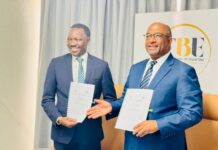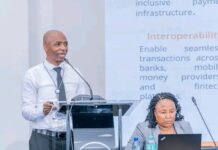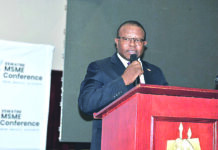While Eswatini has made strides in business growth and attracting foreign investment, the African Development Bank (AfDB) asserts that the country’s greatest potential lies in its natural resources.
According to the AfDB’s Country Focused Report 2025, Eswatini’s timber forests, cropland, and pastureland dominate its natural capital portfolio, valued at US$8.383 million in 2018 — up significantly from 1995. This growth was driven by both renewable resources (like forests) and non-renewable resources (like coal).
| Eswatini Observer WhatsApp Channel
However, the report warns that the lack of a proper management framework for these resources is preventing the country from fully leveraging them to fund initiatives such as climate change mitigation.

Education and Labour Market Gaps
While gross enrolment rates are high — 126% for primary and 100% for junior secondary — the average years of schooling is just six, and dropout rates remain high.
The AfDB notes that 65% youth unemployment is driven by a mismatch between school curricula and industry needs.
Healthcare Concerns
The report highlights high maternal mortality rates and an under-resourced public healthcare system, which present significant social and economic challenges.
Business Climate
The number of firms in Eswatini grew from 5,000 in 2010 to 9,000 in 2022, but this is modest compared to regional peers. Businesses face:
-
High unemployment
-
Heavy reliance on imported electricity
-
Inadequate infrastructure
The government has improved the business environment by streamlining registration processes and promoting online access to business information.
Financial Sector Bottlenecks
The AfDB identifies finance as one of the country’s biggest constraints:
-
Four banks dominate the market, limiting competition and financial inclusion
-
The stock exchange is underdeveloped with low liquidity
-
SMEs face tough lending conditions due to strict collateral requirements
-
37% of the population remains unbanked, restricting savings and investment
While some government support schemes exist, they are not comprehensive.
Innovative Financing Efforts
Eswatini is exploring new financing models, including:
-
UNDP Blended MSME Survey
-
Digital Financial Services Innovation Prize (funded by USAID)
-
A regional blended investment facility for climate-resilient water security projects
AfDB Recommendations
To achieve sustainable growth, the AfDB recommends Eswatini:
-
Strengthen regulatory frameworks
-
Boost competition in the financial sector
-
Promote financial inclusion
-
Simplify tax laws to attract investment
-
Partner with offshore markets for external funding
Key sectors for priority investment include agriculture, tourism, and renewable energy.
The report also calls for:
-
Vocational training to close the education–industry skills gap
-
A framework for managing and leveraging natural resources to fund climate change initiatives and ensure long-term sustainability
Eswatini Observer Press Reader | View Here









